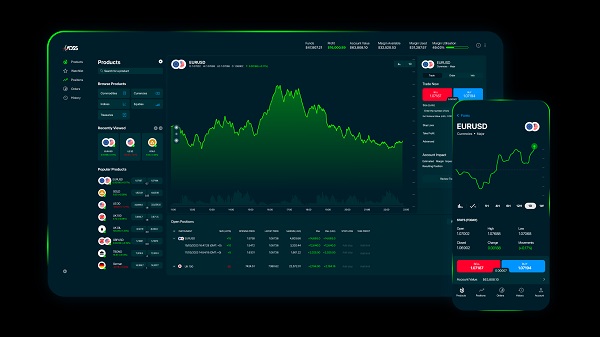Is commodity trading better than stock trading

Commodity and stock trading are our increasingly globalised economy’s most popular investment forms. Both offer the potential for significant returns but vary significantly in risk, market volatility, and complexity. With more and more individuals turning to the financial markets to grow their wealth, it’s essential to understand the fundamental differences between commodity trading and stock trading.
This article will delve into the intricacies of these two types of investments to determine which one may be better suited for your personal goals and preferences. Whether you’re an experienced trader looking for new opportunities or a beginner seeking insight into investing, this post aims to provide valuable information that will help guide your decision-making process. So, let’s explore whether commodity trading is superior to stock trading or is just another hyped-up option in today’s dynamic market environment.
Comparing risk and reward in commodity vs. stock trading
When assessing the risk and reward potential of commodity trading and stock trading, there are a few key factors to consider. First and foremost, commodities typically have a higher volatility level than stocks, making them more suitable for traders with a higher risk tolerance. Commodity prices can swing wildly due to various external factors such as natural disasters, instability, or changes in supply and demand. On the other hand, stocks tend to be less volatile since their value is tied to the overall performance of a company rather than external market forces.
However, with higher risk comes the potential for higher returns. Commodity trading can offer significant potential returns due to its inherent volatility but also carries a greater chance of substantial losses. In contrast, stock trading may offer more stable returns over time, but the potential for massive gains is usually limited.
Understanding the forces that drive commodity prices
Various market factors, including supply and demand, current events, and macroeconomic trends, influence commodity prices. Unlike stocks, primarily driven by company-specific news and performance, commodities can be impacted by a wide range of external factors that may seem unrelated at first glance. For example, the price of oil can be affected not just by changes in oil production or consumption but also by world events such as wars, trade disputes, and changes in government policies. As a result, commodity traders need to stay on top of global news and trends to make informed trading decisions.
Active vs. passive trading of commodities and stocks
Another fundamental difference between commodity trading and stock trading is the level of active involvement required. While both types of investments offer opportunities for strategic buy-and-sell decisions, commodity trading tends to be more actively managed due to its volatile nature.
Traders need to closely monitor market conditions and be ready to act quickly since prices can change rapidly. In contrast, stock traders may take a more passive approach, investing in a diverse portfolio of stocks and holding onto them for extended periods. Check out ADS-securities for the latest news and updates on the financial markets to help inform your trading decisions.
Leverage and liquidity in commodity vs. stock trading
Regarding leverage and liquidity, commodity trading has an edge over stock trading. Commodities are often traded on the futures market, where traders can utilise leverage to control more prominent positions with less capital. It can amplify potential returns but also increase the risk of significant losses. Additionally, since commodities are essential goods that are always in demand, they tend to have higher liquidity levels than stocks, which may be more difficult to sell during market downturns.
Transaction costs of commodity vs. stock exchanges
Transaction costs are another factor when comparing commodity trading and stock trading. Commodity exchanges typically have lower transaction fees than traditional stock exchanges, making it more cost-effective for traders with smaller capital amounts. However, additional fees may be associated with commodity trading, such as storage and transportation costs.
On the other hand, stock trading may involve higher transaction costs due to broker fees, commissions, and additional charges. These costs can quickly increase, particularly for active traders who make frequent trades.
Which one is right for you?
Ultimately, the decision between commodity and stock trading comes down to your risk tolerance, market knowledge, and investment goals. If you’re willing to take on higher levels of volatility and actively manage your trades, commodity trading may offer more significant potential returns. However, stock trading may be a better fit if you prefer a more stable and passive investing approach.
Regardless of your choice, it’s crucial to thoroughly research and educate yourself on the market before diving into any trading. Both commodity trading and stock trading have their unique advantages and challenges, and it’s essential to understand them fully before making any investment decisions.
